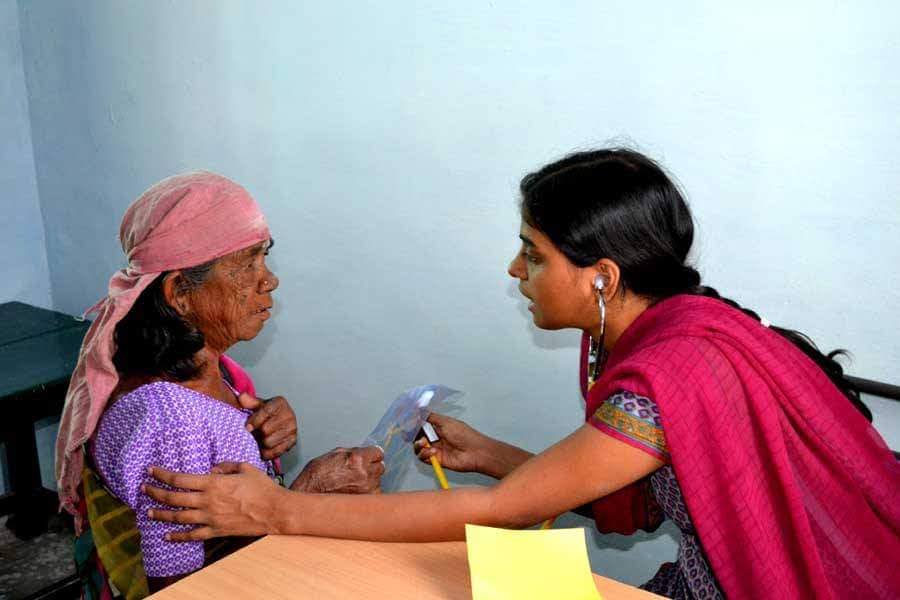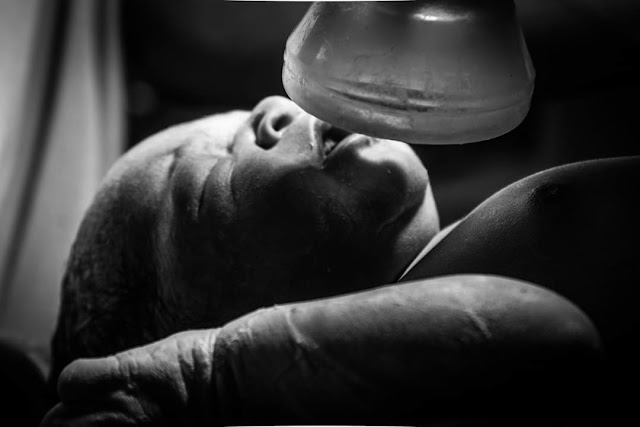'Person of the patient '
"That preterm case delivered. Baby is 1.7 kgs but doing fine "
I told Tha (my mentor ) . I was sitting opposite to her . We were in the amidst of a busy out patient day in Tribal health initiative. To tell exactly,it was my first OP day . With all my theoretical medical knowledge (which were used mainly for exams ) and few of my skills I learnt in internship , I took the role of the junior resident at THI. I was anxious and confused from deep within but outside I showed myself like an expert who can diagnose and treat any medical condition without a second thought. But reality is always very different and difficult from our own perceptions.All I thought was science and skills are only important for a doctor. But the first conversation with Tha broke my idea of the profession itself.
I told Tha (my mentor ) . I was sitting opposite to her . We were in the amidst of a busy out patient day in Tribal health initiative. To tell exactly,it was my first OP day . With all my theoretical medical knowledge (which were used mainly for exams ) and few of my skills I learnt in internship , I took the role of the junior resident at THI. I was anxious and confused from deep within but outside I showed myself like an expert who can diagnose and treat any medical condition without a second thought. But reality is always very different and difficult from our own perceptions.All I thought was science and skills are only important for a doctor. But the first conversation with Tha broke my idea of the profession itself.
After I told Tha about 'preterm case',she looked through my eyes very calmly for a few seconds. Then with her eyebrows raised ,she eloquently told " That preterm case has a name. She has a name. She is a daughter ,wife and a mother in her family. And she has come here to seek our care . All we can do is RESPECT the non hospital part of her "
That's my first lesson in THI. There are a lot of sentences which echoes inside my mind even now. Those lines from my mentors have been anchored into my heart, that I sometimes can even feel the intensity now of what they told . But this was above all .
That's my first lesson in THI. There are a lot of sentences which echoes inside my mind even now. Those lines from my mentors have been anchored into my heart, that I sometimes can even feel the intensity now of what they told . But this was above all .
Respecting the person of the patient. Why did I never hear from this in medical school? Why did I never think about it in training?
It doesn't mean that the people I had seen in my medical training had not affected me.A 38 year old head of the family who hanged himself (it was his 3rd attempt ) and died, a 25 year old young lady who came for child birth lost her uterus due of uncontrolled bleeding , a 13 year old chap who was state basket ball player diagnosed with leukemia ,a mother carrying his toddler son who got electrocuted when she took the coil to heat water and threw the son to save him,and much much more.
Every resident has his or her own diary of people who have affected them emotionally, who leave a mark in in their brains and hearts. Which will never cease to affect us despite the number of degrees we gain. With time, the list increases . Any health care professional is bound to be affected by the day to day patients they see ,in a way more than it looks like. Our memories are not just about the medical science but the real stories linked to these patients from time to time.
But I never came across this idea of respecting the person of the patient.In a place like a tertiary government hospital in India where in there are thousands of patients who walk in everyday (sometimes wheeled in as well), no human being can remember all the names of the people they come across,but trying to do that can make tremendous changes about how we perceive the image of the person hiding behind our 'case diagnosis'.
After all it is the stories that grip us .
In THI, whenever our health workers call us to inform about a patient , it ll start as "Kuttachi 60 year old paati from thadhampatti has come with abdominal pain " and never ever as "an abdominal pain case has come". It is very poetic to hear that even in midnight .It ll build an image of who the person is and how we can relate to them . It was very important for us to make that image to proceed further, in no circumstances it is compromised except for emergencies. Addressing them properly is not just about ethics and responsibility. It is more about acknowledging the person as a whole.
In THI, whenever our health workers call us to inform about a patient , it ll start as "Kuttachi 60 year old paati from thadhampatti has come with abdominal pain " and never ever as "an abdominal pain case has come". It is very poetic to hear that even in midnight .It ll build an image of who the person is and how we can relate to them . It was very important for us to make that image to proceed further, in no circumstances it is compromised except for emergencies. Addressing them properly is not just about ethics and responsibility. It is more about acknowledging the person as a whole.
Cases,disposing cases have become very normal in our daily practice but a small change like this will make us more involved in whomever we treat.
We learn from our patients .We learn from their pain,suffering and disability. They acknowledge us when we do something good and make them feel better. The term "good name spreads " still holds a lot of value in our profession. If our name has a credible value, our patients also deserve to be addressed by their names. The least we can do. Again I would say,it's worth giving a try .
We learn from our patients .We learn from their pain,suffering and disability. They acknowledge us when we do something good and make them feel better. The term "good name spreads " still holds a lot of value in our profession. If our name has a credible value, our patients also deserve to be addressed by their names. The least we can do. Again I would say,it's worth giving a try .
Sridevi's child was with us for almost a month till we started on paaladai feeds and he is a healthy 3 year old now. ( I can remember only sridevi s name , the child was not named then . I would try to find out his name )


Sangeetha...reading this was like talking to you over ghee disaster and lemon tea...that line ...some of their sentences echo in my mind even now...it was de ja vu
ReplyDeleteDosas * not disaster
ReplyDeleteShobi ! Fortunately I learnt only this early in my career that we have to address people the way they want to be addressed, I wouldn't be liked when someone who represents the hospital call me 'aunt' or Mrs. Singh /Mrs. Allen /Mrs. Allen Singh!
ReplyDeleteOne's Nick name or first name is the sweetest melody on earth for them to hear it seems! We have yet to make this way of asking the patients, before that introducing ourselves to them by our names!
I m so glad that 'case' is not the way to identity our unique individualities! I remember 'suit' case only whenever almost Day in day out we hear staff identifying patients!
For safety reasons too we started promoting culture of asking patients full names and never note them by bed /room number etc! Miles to go before we sleep. .
True, girl. The way we address people often shows who we are rather than who the person on the other end is. In fact, by calling someone, by their name, we are not only acknowledging their individuality, but it shows that we have one too
ReplyDeleteVery important lesson to learn !! Even I will try this practice
ReplyDeleteAmazing 👌👌
ReplyDelete